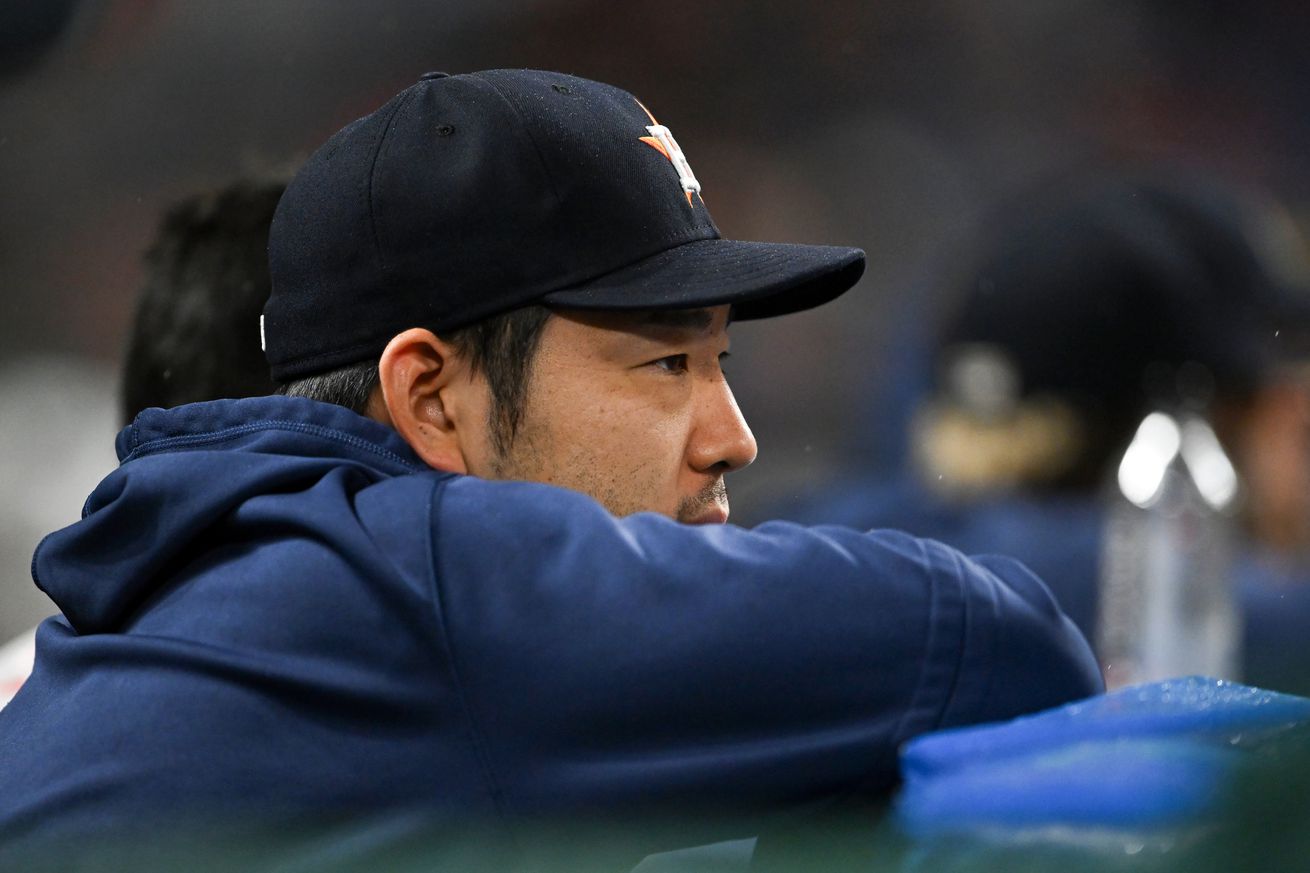
With Yusei Kikuchi heading to the Angels, let’s reexamine last season’s most consequential trade for the Astros.
For the Astros, any contribution they’ll receive from acquiring Yusei Kikuchi is officially over with the news on Monday morning that the left-hander agreed to a three-year, $63 million contract with the Angels. Frankly, I am not that surprised to see Kikuchi would sign elsewhere, considering how Houston still has to sort out third base with Alex Bregman being a free agent and all. I would’ve liked to see Kikuchi remain with the club for a few reasons, but the odds of a reunion always felt slight, especially for $21 million annually during the next three seasons. That is more of a reflection of where the Astros are in terms of player payroll than the contract for Kikuchi, to be clear. While it may become a slight overpay at that price, it isn’t egregious. If anything else, it could prove to be an underpay in a year or two. But for those ten starts in 2024, Kikuchi was extremely fun to watch.
When the trade with the Blue Jays initially broke, I wasn’t sure what to think about seeing the Astros trade Joey Loperfido. Or Jake Bloss. Even Will Wagner. While each has positives within their respective profiles, there were also red flags. Loperfido can hit with power, but strikeouts could keep him from being an everyday regular. For Wagner, I am not sure what to think about his ceiling, but I think his floor as someone who can help fill out a depth chart with a quality on-base tool is likely. I wonder how not having a proper defensive position affected Houston’s evaluation of him. There’s also the looming 40-man roster decision Dana Brown would’ve had with him this offseason if he wasn’t traded, so the Astros probably felt more at ease by including Wagner to help sweeten the deal. Bloss was the player in the deal I hated to see leave most. He has the signature rising fastball that has become a staple in Houston’s pitching development. His slider and curveball have real potential. I genuinely think he can become a legitimate middle-of-the-rotation arm, not unlike Kikuchi, with a bit more development. But the Astros are also caught in this weird in-between mode, with an eye on maximizing postseason odds with the current roster but also looking to rebuild a depleted farm system. Bloss was a casualty of these circumstances.
Including Bloss in any deal was a likely starting point in any deal. By themselves, Loperfido and Wagner probably won’t land a pitcher like Kikuchi. With that said, Loperfido’s inclusion, and to some degree Wagner’s, might speak more to how much the front office wanted Kikuchi than anything else. I was, honestly, a bit more surprised that Brown agreed to trade all three in a single deal for a middle-of-the-rotation arm. Of course, the Astros identified something in Kikuchi — TL;DR, slider good, curveball bad — to help unlock his latent potential that both Seattle and Toronto tried to unlock but couldn’t completely. But with a farm system as thin as Houston’s, the idea of trading all three of Loperfido, Bloss, and Wagner felt a bit much, even if I wasn’t exactly enthralled with the individual potential of two of the three prospects. Make no mistake, Bloss was the prospect who made the trade work. It was an overpay in a general sense for the Astros, but its depths won’t be known for a while yet. With each of the trio still under club control for multiple years, the Blue Jays stand to reap more long-term benefits, especially if those players are eventually included in further trades down the road.
It isn’t a stretch to speculate that Houston could’ve used all three players in some fashion in 2025. However, top prospect Jacob Melton likely made Loperfido a bit more expendable to the Astros. Even without a true defensive position, Wagner could’ve provided some depth at first base, where the organization moved him in 2024 before the trade deadline. Again, Bloss was the actual loss of the trade. It is within the realm of possibilities that he assumes a more prominent role in 2025, albeit now with the Blue Jays. In other words, we won’t know the exact ramifications for a while.
Regarding Kikuchi’s agreement with the Angels, the Astros now see a crucial pitcher down the stretch this year join a division rival. I am curious how much Kikuchi’s adjustments in Texas will carry over into California. Kikuchi saw a demonstratable improvement across the board by exchanging curveballs and four-seam fastballs for more sliders. There is a bit of a batted ball regression within Kikuchi’s profile, though, as he posted a .241 BABIP with the Astros compared to a .304 career BABIP dating back to 2019 despite generating a higher groundball rate by 5.4%. But if he can maintain some of those gains within his whiff and strikeout rates, then a regression closer to his career average on the batted-ball front could be somewhat muted. Ultimately, his new contract’s price was too cost-prohibitive for the Astros’ current situation, especially if they earnestly want to retain Bregman’s services.